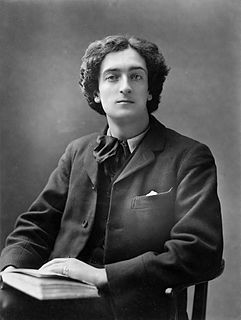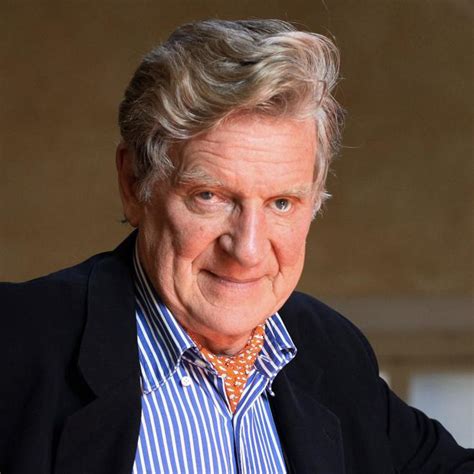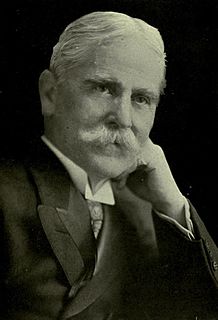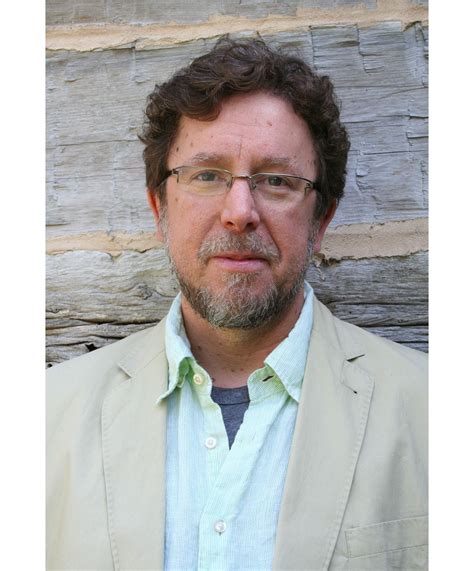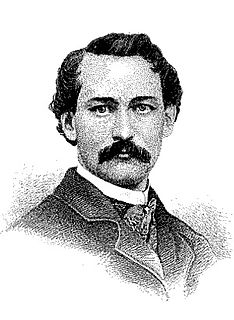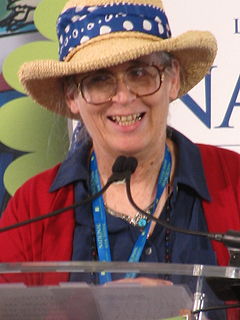A Quote by Richard Le Gallienne
I meant to do my work today
But a brown bird sang in the apple tree
And a butterfly flitted across the field
And all the leaves were calling me.
Related Quotes
Sometimes I come across a tree which seems like Buddha or Jesus: loving, compassionate, still, unambitious, enlightened, in eternal meditation, giving pleasure to a pilgrim, shade to a cow, berries to a bird, beauty to its surroundings, health to its neighbors, branches for the fire, leaves for the soil, asking nothing in return, in total harmony with the wind and the rain. How much can I learn from a tree? The tree is my church, the tree is my temple, the tree is my mantra, the tree is my poem and my prayer.
Every spirit passing through the world fingers the tangible and mars the mutable and finally has come to look and not to buy. So shoes are worn and hassocks are sat upon and finally everything is left where it was and the spirit passes on, just as the wind in the orchard picks up the leaves from the ground as if there were no other pleasure in the world but brown leaves, as if it would deck, clothe, flesh itself in flourishes of dusty brown apple leaves and then drops them all in a heap at the side of the house and goes on.
If an apple blossom or a ripe apple could tell its own story, it would be, still more than its own, the story of the sunshine that smiled upon it, of the winds that whispered to it, of the birds that sang around it, of the storms that visited it, and of the motherly tree that held it and fed it until its petals were unfolded and its form developed.
My heart is like a singing bird Whose nest is in a water'd shoot; My heart is like an apple-tree Whose boughs are bent with thick-set fruit; My heart is like a rainbow shell That paddles in a halcyon sea; My heart is gladder than all these, Because my love is come to me. Raise me a daïs of silk and down; Hang it with vair and purple dyes; Carve it in doves and pomegranates, And peacocks with a hundred eyes; Work it in gold and silver grapes, In leaves and silver fleurs-de-lys; Because the birthday of my life Is come, my love is come to me.
Leaves are usually looked upon as the children of the tree. Yes, they are children of the tree, born from the tree, but they are also mothers of the tree. The leaves combine raw sap, water, and minerals, with sunshine and gas, and convert it into a variegated sap that can nourish the tree. In this way, the leaves become the mother of the tree. We are all children of society, but we are also mothers. We have to nourish society. If we are uprooted from society, we can not trasform it into a more liveable place for us and our children.
Fall leaves are brilliant with gold and red. You can cup them in your hand and wonder at them, be amazed at their uniqueness and glory. But eventually they are gone, brown, crumbling, scattered on the wind. But the tree remains. The tree is what is important. The tree lives on. That was a difficult knowledge to bear, and an even more difficult life to live. Of course, being the leaf wasn't exactly desirable either.
Oh that it were with me
As with the flower;
Blooming on its own tree
For butterfly and bee
Its summer morns:
That I might bloom mine hour
A rose in spite of thorns.
Oh that my work were done
As birds' that soar
Rejoicing in the sun:
That when my time is run
And daylight too,
I so might rest once more
Cool with refreshing dew.
In exchange for his first taste of powdered milk, Pascal showed me a tree we could climb to find a bird's nest. After we handled and examined the pink-skinned baby birds, he popped one of them into his mouth like a jujube. It seemed to please him a lot. He offered a baby bird to me, pantomiming that I should eat it. I understood perfectly well what he meant, but I refused. He did not seem disappointed to have to eat the whole brood himself.
In the woods, if you stopped, if you grew still, you'd hear a whole new set of sounds, wind rasping through silhouetted leaves and the cries and chatter of blue jays and brown thrashers and redbirds and sparrows, the calling of crows and hawks, squirrels barking, frogs burping, the far braying of dogs, armadillos snorkeling through dead leaves.
A tree is alive, and thus it is always more than you can see. Roots to leaves, yes-those you can, in part, see. But it is more-it is the lichens and moss and ferns that grow on its bark, the life too small to see that lives among its roots, a community we know of, but do not think on. It is every fly and bee and beetle that uses it for shelter or food, every bird that nests in its branches. Every one an individual, and yet every one part of the tree, and the tree part of every one.
